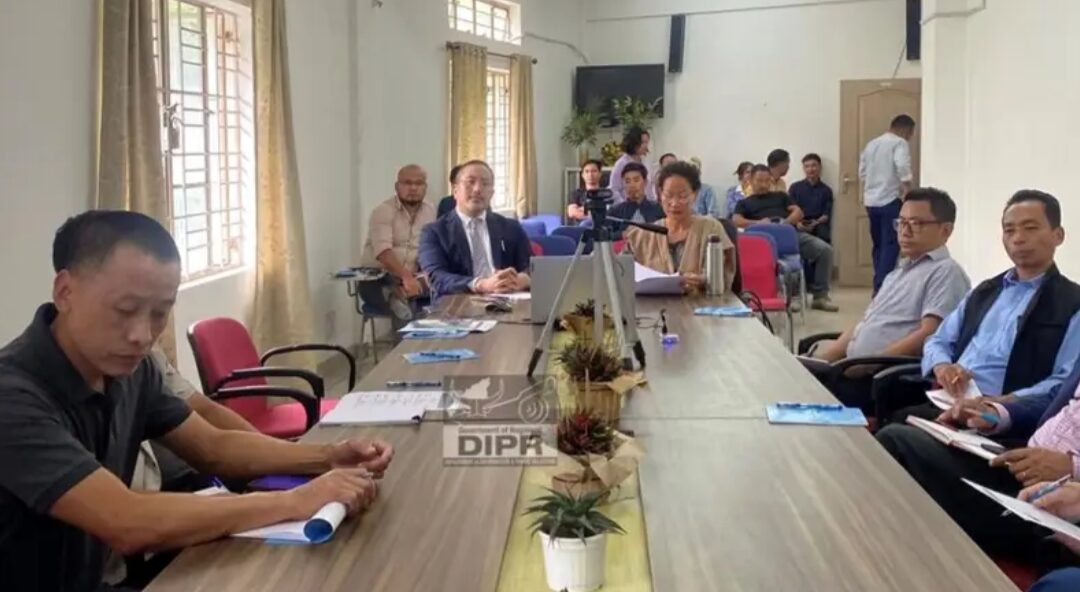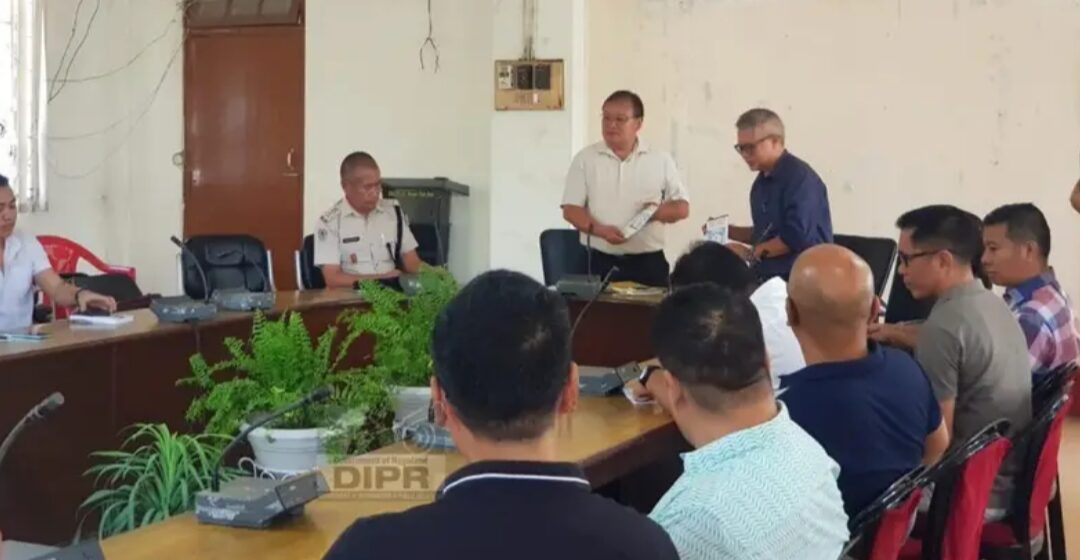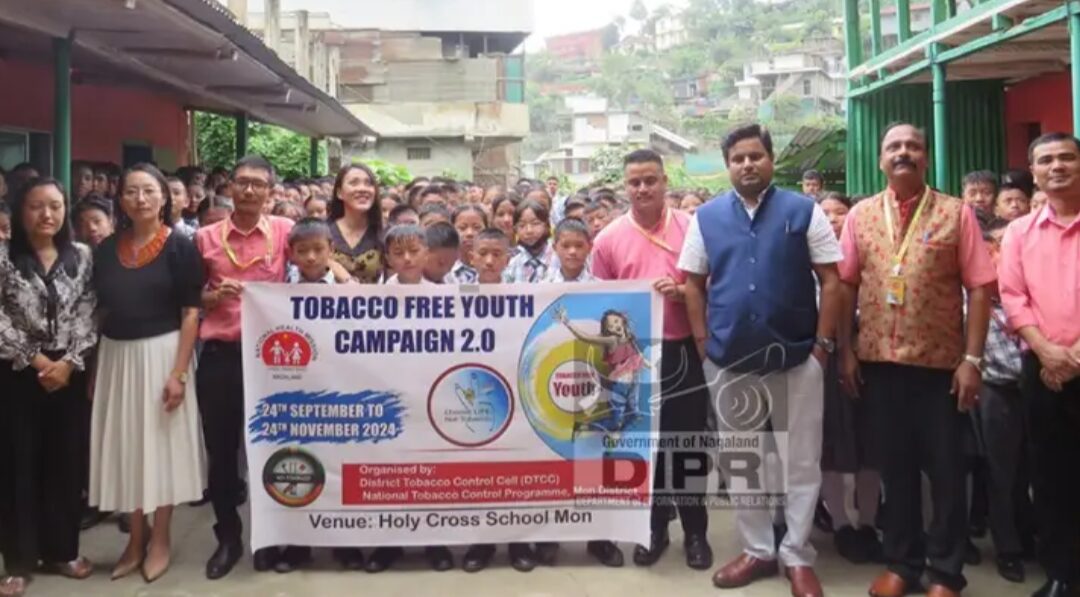On September 11, 2024, an Inter Ministerial Central Team (IMCT) led by Joint Secretary Anant Kishore Saran from the Ministry of Home Affairs visited Zunheboto district in Nagaland. The team’s mission was to conduct an on-the-spot assessment of the damage caused by landslides and flash floods during the monsoon season.
The team began their visit with a briefing at the Deputy Commissioner’s conference hall, where they met with the District Administration, members of the District Disaster Management Authority, Zunheboto Town Council, and representatives from various concerned departments. During this meeting, the departments presented a PowerPoint presentation to provide a comprehensive overview of the current situation on the ground.
Also Read: Awareness Campaign on ‘Nasha Mukt Bharat Abhiyan and Mental Health’ held in Zunheboto
Following the briefing, the IMCT visited the areas most affected by the landslides and flash floods. They interacted with families and residents who had been displaced, as well as local leaders, to gain a deeper understanding of the situation and the needs of the community.
On the second day of their visit, the team held another briefing at the Deputy Commissioner’s conference hall. This time, they met with officials from Tuensang, Shamator, and Noklak districts. The respective District Disaster Management Authorities (DDMAs) from each district presented their findings through PowerPoint presentations, highlighting the impact of the landslides and flash floods in their areas.
Also Read: Nagaland’s tourism leap: Zunheboto training empowers local communities
Joint Secretary Anant Kishore Saran was accompanied by a team of experts, including Superintending Engineer Sarvana Kumar from the Ministry of Jal Shakti, Department of Water Resources; Superintending Engineer Adelbert Susngi from the Ministry of Road, Transport & Highways; Assistant Director Ranjana Saini from the Ministry of Rural Development; and Section Officer Atul Bamnai from the Department of Expenditure, Ministry of Finance.
The visit by the IMCT is crucial as it aims to assess the extent of the damage and identify the immediate needs of the affected communities. This assessment will help in formulating relief and rehabilitation strategies to support those impacted by the natural disasters.




